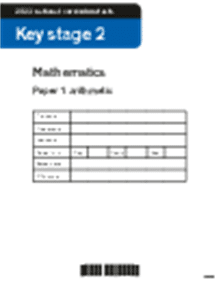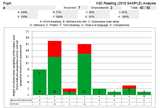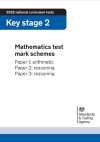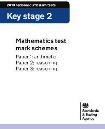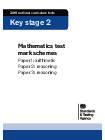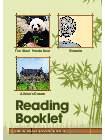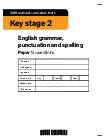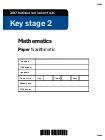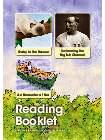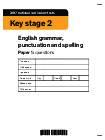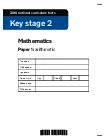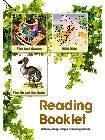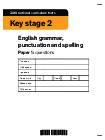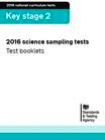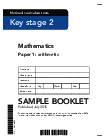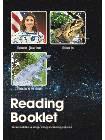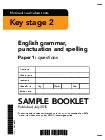KS2 SATs Papers Free | Year 6 Past Papers, Mark Schemes & Analysis Tools
Looking for free KS2 SATs Papers? At PrimaryTools.co.uk, you’ll find official Year 6 SATs past papers for Maths, Reading, and Grammar (SPaG), complete with mark schemes and powerful gap analysis tools.
Prepare for success with our free KS2 SATs Papers collection. Download official Year 6 SATs past papers, mark schemes, and question-level analysis for Maths, Reading, and SPaG (Grammar, Punctuation & Spelling). Perfect for parents and teachers looking to boost confidence and track progress.
Download Free KS2 SATs Papers (1999–[current_year])
Access every official KS2 SATs Paper from 1999 to [current_year] including answers and mark schemes. Note the current year’s KS2 SATs papers will not be available until two weeks after the assessment window in May.
KS2 Maths SATs Papers – Arithmetic & Reasoning, KS2 English Reading Papers – Comprehension practice, KS2 SPaG Papers – Grammar, punctuation & spelling
Why Use KS2 SATs Papers?
- Boost Confidence: Familiarize your child with real exam questions.
- Identify Strengths & Weaknesses: Target areas for improvement.
- Track Progress: Monitor learning and celebrate success.
For extra tips, visit BBC Bitesize KS2 SATs Revision and GOV.UK SATs Guidance
KS2 SATs Explained
KS2 SATs are National Curriculum Tests taken by Year 6 pupils in May. Subjects include Maths, English Reading, and Grammar Punctuation and Spelling (SPaG). Writing is teacher-assessed. Learn more on GOV.UK.
SATs is actually an informal name for the government’s National Curriculum Tests. The SATs name has likely been adopted from American tests which are short for Standard Attainment Tests.
SATs can also be called ‘SATs papers‘, ‘SATs exams‘ or ‘SATs tests‘.
When do pupils take KS2 SATs Papers in Year 6?
All children in state schools are expected to take the SATs tests in May, towards the end of KS2 (Year 6). There is no requirement for children to take the tests in private schools, although many of them do so informally. The usual structure of the week is as follows:
- Monday – Grammar, Punctuation and Spelling (also known informally as ‘SPaG’)
- Tuesday – Reading
- Wednesday – Mathematics Paper 1 (Arithmetic) and Paper 2 (Reasoning)
- Thursday – Mathematics Paper 3 (Reasoning)
Children who struggle to take the KS2 SATs Papers in Year 6
The government produces variations of the tests that mean some children can still take the KS2 SATs Papers in Year 6 even if they have impairments such as visual or hearing impairments – see ‘modified packs’ in our downloadable resources above. Some children may not be able to access the tests due to more profound needs. Instead these children are given a teacher assessment using the Pre Key Stage Standards (KS1, KS2) or Engagement Model. A school should inform you if your child will not be taking the test.
When are KS2 Year 6 SATs Papers (Tests)?
The SATs Papers Tests at the end of KS2 Year 6 take place in May after Easter. Schools have a window when they can choose to deliver the optional KS1 SATs Tests. Dates can be found here.
When are KS2 SATs Papers Published?
KS2 SATs Papers/Tests are normally published publicly in the latter half of May in the year in which they taken and you can find them all on our website.
How Are KS2 SATs Results Reported?
Results are reported as: Working Towards Expected Standard, Working At Expected Standard, Working At Greater Depth. Schools also use Scaled Scores for precision. Schools usually receive their results in early July and will report these outcomes to parents shortly afterwards, but they may withhold the scaled score.
Additional Resources
👉Rapid Reading & Grammar Activities
KS2 SATs Papers – For Parents:
- Boost Confidence: Help your child feel prepared and confident with authentic practice materials.
- Identify Strengths & Weaknesses: Use these free KS2 SATs past papers to pinpoint areas where your child excels and where they may need extra support.
- Familiarize with the Format: Practicing with free KS2 SATs past papers helps children understand the structure and types of questions they’ll encounter.
- Track Progress: Monitor your child’s learning journey and identify areas for improvement.
How do I prepare my child for their KS2 SATs papers?
SATs Tests can be stressful for children but a school will prepare the children as best they can for example by doing Mock Tests. You can also use the resources on this website to help.
- Free access to past papers: Phonics, KS1, KS2, Year 3 to 5, and KS3 including access to Mark Schemes
- Revision Packs for Mathematics
- Rapid Reading, Rapid Grammar and Rapid Arithmetic – short activities based on National Curriculum Tests (SATs Papers)
- Test Gap Analysis – built for schools to use usually for a cohort of children but can be used for individual children too. There are many free versions available to try out.
KS2 SATs Papers – For Teachers:
- Diagnostic Assessment: Utilise free KS2 SATs past papers to assess student understanding and inform your teaching.
- Curriculum Alignment: Ensure your lessons are aligned with the KS2 curriculum by using these authentic materials.
- Exam Technique Practice: Help students develop effective strategies for tackling the SATs.
- Classroom Resource: Easily incorporate these free KS2 SATs past papers into your lesson plans.
Other Statutory Assessments
As well as the KS1 and KS2 SATs Tests there are a number of other Statutory Assessments in Primary Schools. Statutory means that schools have to do them.
Reception Baseline Assessment
This is new from 2021. A pupil is expected to take a short assessment within the first 6 weeks of them entering Reception. This is a short assessment on speaking & listening, early reading and mathematics. The results are not reported to parents and there is no pass mark. The results will be used by the government to measure progress of pupils from their entry into Reception to when they leave Year 6. This means that the KS1 SATs tests are no longer a statutory requirement as they are not needed for measuring progress.
Phonics Check
This occurs in June every year for all Year 1 children. Children read 40 real and pseudo (made up) words to test their phonics decoding ability. The pass mark is usually 32 and results should be reported to parents. If a pupil does not meet this ‘expected standard’, they are tested again in Year 2.
Multiplication Check
2022 is due to be the first year that this is statutory due to delays caused by Covid-19. It happens towards the end of Year 4. Children use a computer to answer a range of multiplication questions up to 12×12 and have 6 seconds to answer each question.
Other Year Groups
Schools can choose whether they do tests in other year groups. There is no requirement to do so and no requirement to report test results to parents. However schools do have to write a report for each child annually. For the previous National Curriculum (pre 2014), the government did produce Year 3 to 5 Tests and KS3 Tests tests.


